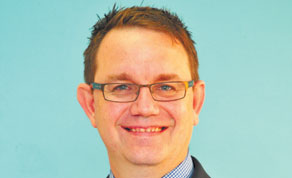 |
| Owen 'preparing for big events |
As many as 50 new ambulances will be added to the Hamad Medical Corporation’s ambulance service in the next few days, to optimise its emergency response time and in preparation for upcoming high profile events in December, it was learnt yesterday.
Also, the ambulance service will by April next year, start to put physical structures in strategic locations under its “hub and spokes” system to replace ambulances that are presently being stationed there.
“We are going to receive soon some 50 new ambulances as part of efforts to prepare ourselves for big events coming up in the country, such as the Arab Games.We are planning to deploy up to 50 ambulances during that event and we will also be present at the upcoming World Petroleum Congress as well as station some ambulances in strategic locations throughout the Qatar National Day celebrations,” Ambulance Services executive director Dr Roberts Owen told mediapersons yesterday.
Owen said the new ambulances, which are smaller in size have been redesigned for easy navigation through traffic and for quicker access to emergency cases apart from being environment-friendly.
“The new set of ambulances have been made smaller only for easy manoeuvring through road congestion but they are still intelligently designed with enough room in their interiors. They have also been fitted with new technologies, adequate lighting, air-conditioning and other effective gadgets,” Owen explained.
On the hub and spokes system, he said: “Many residents must have been wondering why ambulances are stationed in certain places, especially near densely populated areas, we will want them to realise that the vehicles are supposed to be there as our plan is to get the ambulance closer to patients, who will be needing our services in case of emergency,” he said.
He mentioned that the services has secured all necessary support and permission required to put shelters in those locations saying “we want to operate emergency services in a tangible way especially when the emergency calls we receive per annum has continued to climb by 10% each year.”
The official mentioned that a slight increase has been noticed in emergency cases due to road traffic trauma caused by the rains. On the air ambulance, Lifeflight, which recently commenced night shift, Owen mentioned that landing zones have been carefully designated in certain areas of the country for the helicopters, which run a maximum of six hours operation daily.
“Because of feasibility and due to the risky nature of night operations, we have identified certain zones for landing at night and one of such important zones where we envisage occurrence of serious trauma is the Sealine area as we have noticed an increase in migration to that place since the onset of winter,” he noted.
However, Owen advised residents, who suspect they have suffered cardiac problems such as chest pain to avoid travelling to the hospital on their own either in private or public vehicles.
“It is important for people who have suffered cardiac problem, to call 999 instead of thinking to drive themselves to the hospital because their situation might get worse in the process, but if they call the ambulance services, we will begin treatment early and deliver them safely to the appropriate facility,” he maintained.
The Ambulance Services, which was formerly known as Emergency Medical Services, has recently become the first national ambulance service to be accredited by the Joint Commission International (JCI).
The ambulance service was also the fifth such service in the world to achieve JCI accreditation, as well as the biggest ambulance service in the world that has been assessed by the JCI.

